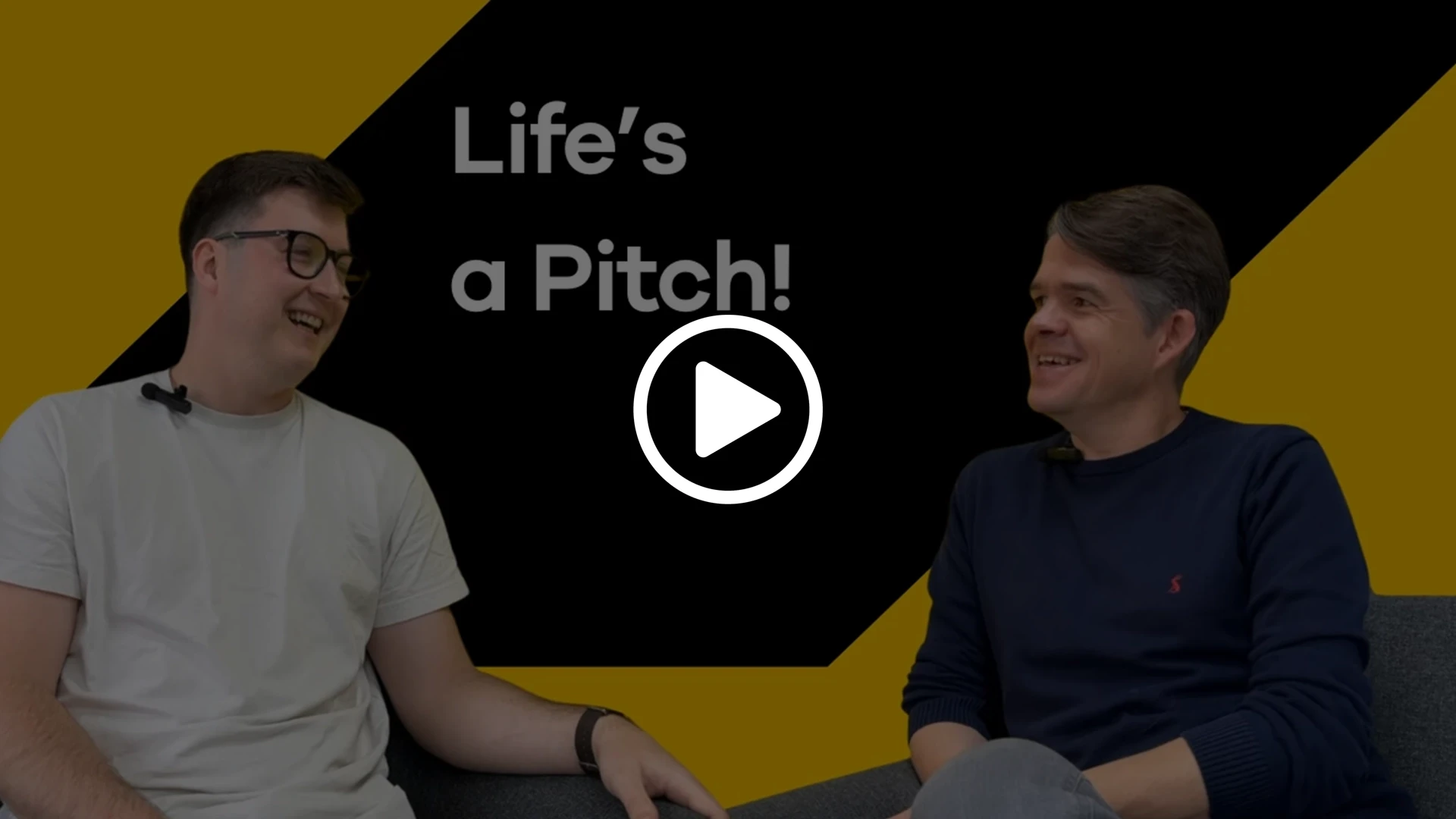
Eyeweb
Unplugged:
Life's a Pitch! | Episode 2 | Eyeweb Unplugged
In this episode, we stepped away from strategy and opened up about some of the early career moments that stick with you. The awkward meetings, the unexpected presentations, and the slip-ups that, at the time, felt awful but ended up shaping how we work today.
About the episode
When It All Goes Wrong (And You Just Want to Disappear)
Everyone has that story. The meeting you walked into and instantly wished you could turn around and walk straight back out. For Paul, it was a second-stage pitch where we’d missed a single line in the client’s spec. They required 24-hour phone support, which we couldn’t offer. By the time we spotted it, the client was already on their way in.
We tried to make it comfortable with the usual tea and coffee, though even that went wrong. Milk and sugar orders mixed up, and they hadn’t even lifted their cups before we had to tell them the bad news. They got up, said nothing, and walked out. It was a major client, and it stung.
Then there was the time using a generic name for an example went very, very wrong. When trying to explain audience personas, instead of saying “Fred Bloggs”, the name that came out was… unfortunate. While the situation was recovered, the judgmental inner voice did not stay quiet for the rest of the meeting.
Knowing When Something Isn’t the Right Fit
Sometimes it’s not a mistake that causes the issue, but misjudging the scale of a project or the client’s expectations. There have been times where we’ve gone in confident, only to find out the job was far bigger than we realised. It can catch you off guard. That kind of experience is humbling, and it’s why we now put such a strong focus on qualifying leads from the very first conversation.
Years ago, we would put together full proposals without ever discussing budget upfront. One client once responded to a £4,000 proposal by saying they had £500 to spend. That conversation should have happened on day one. It just shows how different the approach used to be. Clients focused on what a website cost, rather than what value it brought. Things are very different now.
From Sitting in the Background to Leading the Conversation
Not everyone starts their career confident in front of clients. Some of us were far more comfortable in the background, building websites, away from the spotlight. Presenting in front of a room of 20 people can be really intimidating and less productive. A member of the team had an unexpected demo at a school, with no prep, and a screen no one could even see. This still sits at the top of the list of career-defining panic moments.
It’s those experiences that make you better, even if they’re horrendous at the time. Now, we know what works. We find that smaller, more personal meetings where we can really understand people and build proper relationships are more effective. The big formal pitches, where no one asks questions and everyone just watches, don’t suit the way we work. We like conversation, not performance.
Building Confidence, Slowly but Surely
That shift from being focused on the product to being someone who leads client conversations is a big one. But it happens naturally over time. Partly because the services we offer now are so much more valuable, and partly because we’ve seen the impact they have. When you know the work delivers results, it’s easier to speak with confidence.
It’s also about realising that clients want your guidance. You know more about your subject than they do, and they’re looking to you for answers. Once that clicks, the fear starts to ease.
Of course, impostor syndrome still lingers. It’s very real, especially early in your career. Whether you’re stumbling through your first SEO presentations to execs or sitting in front of clients trying to explain something you only recently learned, those moments can be tough. But they pass. Two or three years later, the same topics feel second nature, and presenting them feels less like a challenge and more like a conversation.
Final Thoughts
What all of this shows is that experience matters. The mistakes, the awkward moments, the times you wanted the ground to swallow you up, they all help you grow. They also remind you of the importance of doing the groundwork early, building the right kind of client relationships, and being honest when things don’t go as planned.
These days, we focus less on impressing and more on understanding. Less on performance, more on partnership. And we’re much better for it.
Is Imposter Syndrome Sus? | Episode 3 | Eyeweb Unplugged
In this episode, we talked about something a bit more personal. Impostor syndrome. That feeling that you’re not quite good enough, even when all evidence says otherwise. It’s something that comes up a lot, particularly in marketing and creative industries, where success is often subjective and feedback can be inconsistent.
We explored why it shows up, how it feels, and why it might never fully go away. But more importantly, we looked at how to manage it and even use it to your advantage.



